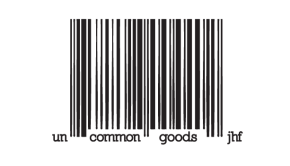David Goldberg: Offsetting the Panopticon
 Who’s your hero? Left: Is that Google Glass you’re wearing, Edward? Right: This is Howard Finch. He built the Machine for the government, and got frustrated when its abilities to anticipate violent acts were exclusively applied to terrorism. Snowden blew the whistle, Finch made himself a key to the back door.
Who’s your hero? Left: Is that Google Glass you’re wearing, Edward? Right: This is Howard Finch. He built the Machine for the government, and got frustrated when its abilities to anticipate violent acts were exclusively applied to terrorism. Snowden blew the whistle, Finch made himself a key to the back door.
“You are being watched. The government has a secret system, a Machine that spies on you every hour of every day. I know because I built it.” This is from the opening monologue of Person of Interest, a weekly CBS drama about the technological and algorithmic enormity of the US surveillance apparatus becoming semi-autonomous and coming home to roost.
The show is about the old power of organized criminal networks (drug dealers, cops, and politicians) versus the new power of synthetic perception, pattern recognition, and emergent intelligence. PoI informs the 21st century mythology we use to deal with the recently confirmed reality of government-sponsored total information awareness.
But are we really dealing, or just striking poses of panic, outrage, and elite cynicism in our social media feeds and comment threads? You may have encountered the folks screaming “I TOLD YOU SO, NOW WHAT ABOUT THE ALIENS AMONG US?” and those who have no problem with the panopticon because they claim to have nothing to hide from phone taps, face and gait recognizers, body scanners, or anal probes.
The National Security Agency and its allies have been recording everything for a long time now, and when compared to the relatively small but zealous communities of electronic activists, cryptography geeks, and eternal vigilantes, most people don’t really care. Is it because the idea is simply too big, because we are already comfortable with it, or because there are far more pressing issues? Maybe we’ve been expecting the situation ever since Orwell.
Faced with the fact that there really is a state-sponsored (we don’t care about the commercial ones) Machine “that spies on you every hour of every day”, we seem to be reiterating the reactions produced by the emergence of Abrahamic monotheism. With exquisite timing that synced up with wars, famines, cosmological events, and political upheavals, prophets of old proclaimed the existence and absolute power of a New God. They generated fear, adulation, skepticism, atheism, and plain old ignorance. Start-up cults were appropriated by the very empires they scheduled for divine retribution, and now the eye of the pyramid watches you from the back of every dollar, the masses and the elite separated by a little gap of air.
 Joke’s on you, Jack: Left: the classic logo of DARPA’s “Information Awareness Office” trolled the conspiracy theorists so hard, or was it actually an extension of the symbolic Illuminati language found on the dollar bill? The truth is out there, on the right.
Joke’s on you, Jack: Left: the classic logo of DARPA’s “Information Awareness Office” trolled the conspiracy theorists so hard, or was it actually an extension of the symbolic Illuminati language found on the dollar bill? The truth is out there, on the right.
This is what it looks like when an entire society gets trolled, and why we enjoy the elite protagonists of Person of Interest. Though everyone but the dog is in some way socially handicapped by their specialized skillsets, they are above all committed to justice in a shadowy world of computing, crime, and power that people ignore until an identity is stolen, a database is hacked (hello Target!), a computer gets hijacked, or a Buttle becomes a Tuttle.
For the Civil Libertarians, Innocent Patriots, and Tinfoil Hat Commandoes, the prophet-traitor of this Great Revelation is a former NSA contractor named Edward Snowden who used to live in Waipahu. There is probably no better place for the confirmation of George Orwell’s future (or James Cameron’s, if you prefer) to have emerged than a mundane suburb in Paradise, itself.
 Here’s the old NSA building near Kunia Camp. Parking obviously sucks, and the roof probably leaks, so Edward Snowden worked from home. (Image from Google maps)
Here’s the old NSA building near Kunia Camp. Parking obviously sucks, and the roof probably leaks, so Edward Snowden worked from home. (Image from Google maps)
None of his neighbors met him or could remember his girlfriend’s name.
Clearly he lived in that part of Waipahu.
 “I do not want to live in a world where everything I do and say is recorded.” –Edward Snowden LOL Lindsay, the bag will only work if u line it with tinfoil!
“I do not want to live in a world where everything I do and say is recorded.” –Edward Snowden LOL Lindsay, the bag will only work if u line it with tinfoil!
Though many doubt Snowden’s intent (hero or villain?) some doubt his very existence, believing him to be an elaborate product of the intelligence community. As for girlfriend Lindsay Mills, her #pole_dancing #living_positive #loving_paradise social media was so stereotypically Internetty that it was easy to mistake her for a follow-bot from the ghettoes of Instagram or Vine. After her provocative selfies were redistributed by the likes of Salon.com and The New York Times, she hasn’t done any interviews. Who needs the “real thing” when we’ve consumed her online identity.
Snowden ditched Mills in Hawaii, gave his stash of documents to Glenn Greenwald at the UK’s Guardian newspaper for safe keeping, bounced to Hong Kong, and finally ended up in Russia. Today, retired CIA guys call for him to be hanged until dead, and even Obama has said he’s no patriot. Where Snowden goes next matters little, as even he has said that his mission is accomplished.
All summer, the Guardian published one crazy document after another, each demonstrating an escalating level of surveillance power at the NSA’s disposal. First, there was Verizon turning over phone records to the NSA. Then there was PRISM (imagine the Pink Floyd album cover), the data collection tool which soon yielded the scary name crown to “Boundless Informant”.
Everything peaked when a hand-drawn diagram (probably done by a 26 year-old math and code wizard) sketched out how the NSA compromised our favorite web service providers. They tapped the unencrypted connections between Microsoft, Yahoo!, and Google data centers, allegedly causing engineers from the latter company to explode in curses. Which is pretty funny, actually. Because, you know, Google is a cool American company that hires the smartest, coolest people in the world, and the NSA works for America (hiring smarter people, apparently), and Google’s cool motto is “don’t be evil,” so there you go.
NSA human and software spies were revealed to be everywhere, all up in your router and secure sockets layer, even. Trust no one, indeed.
Snowden blew the whistle, and our minds.
I guess.
Maybe.
If you haven’t been paying attention.
Here’s Google’s mission statement:
Google’s mission is to organize the world’s information and make it universally accessible and useful.
Then Facebook’s:
Facebook’s mission is to give people the power to share and make the world more open and connected.
Now Amazon’s:
Our vision is to be earth’s most customer centric company; to build a place where people can come to find and discover anything they might want to buy online.
And Acxiom’s:
Giving [clients] that certain moment when clarity becomes confidence. Finding a whole new customer segment. Reaching everyone who needs to be reached. Understanding those tiny market nuances.
And finally, here’s the NSA’s highest responsibility:
Collect (including through clandestine means), process, analyze, produce, and disseminate Signals Intelligence information and data for foreign intelligence and counterintelligence purposes to support national and departmental missions.
These are some of the largest data collection and analysis entities on the planet, and they all effectively do the same thing: monitor, analyze, and anticipate the activities of our eternal digital souls.
Each of these Machines is granted rights and a degree of legal operational autonomy through our dedication to the triplet religions of individualism, consumerism, and national security. Beyond the fact that big fish eats little fish, they are related by a kind of fanaticism, hubris, and entitlement that is not embodied in an individual but coded deeply into the fabric of highly automated and intensely non-human daily operations.
The NSA hides its infernal processors behind an image of strength and duty. Amazon’s are behind a wry grin, Google’s behind clean design and sheer ubiquity, and Facebook’s behind their mirror of your social relationships. Acxiom prefers to remain so heavily camouflaged they won’t even tell the government how they do what they do.
They differ in terms of the quality of human motivation where their algorithms are aimed: with shopping (desire) at one end of the spectrum, and terrorism (fear) at the other. The intimate connection between the two is not hard to make, but, rather than get lost in a maze of theory or politics, let’s look at a simple underlying fact: Virtualized events, from status updates to news feeds and terrible pictures of your best friend’s lunch, produce actual emotions.
We love and trust our emotions, especially when they’re in the palms of our hands. Therefore, the concrete and measurable effects of digital engagements (this is why companies and government agencies record them!) trump the means by which they are delivered to us. I think we underestimate our commitment to the infrastructure that makes the mundane pleasures of digital life possible, even if it is being used against us. We might lack the will, and, more importantly, we might lack the tools to do anything different.
This is perhaps why Snowden’s revelations of a surveillance God may prove to be ultimately inconclusive. Even if we learn from Obama’s speech today that lawmakers will somehow limit the NSA’s collection activities or throw a few more checks and balances into the mix, I can’t imagine the NSA’s core mission being defunded, the fundamentals of its procedures altered, its technologies reined in, or the construction of its massive Utah data processing facility halted.
After a Presidential apology and promise that this kind of thing won’t happen in the future, much of the criticism being directed at the NSA will return to underground information monasteries where their actions and those of other agencies and institutions are always being questioned.
In the mean time, we still have Person of Interest to soothe our anxieties with its metaphysical David and Goliath narratives in the digital Elah Valley.









